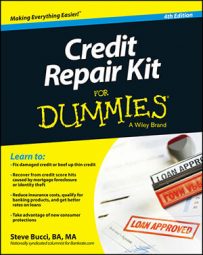When all is said and done and you’ve already taken the hit to your credit, you may still owe some money. If your home sells for less than the amount you still owe on the mortgage, plus fees, then you may have what’s called a deficiency balance.
For example, say you borrow $500,000 to purchase a home, but you fall behind on payments or walk away from the home, and the bank forecloses. The home ultimately sells for $400,000. The $100,000 that the lender loses on the deal is called a deficiency. A first mortgage holder may or may not forgive this amount. Second mortgage holders often go after the borrower for deficiencies.
Your lender can get a deficiency judgment lien against your personal property and any other real estate that you own, giving it a security interest in that property. This means that the bank could foreclose on other real estate if you have enough equity for the bank to think that it might get enough money to make the effort worthwhile.
However, just because the lender gets a deficiency judgment does not mean that it will try to collect. The lender may opt to write off the debt and issue you an IRS form 1099-C. If this happens, you might owe taxes on the forgiven amount.
If a lender comes after you for a large deficiency, consider speaking to an attorney about the benefits of filing for bankruptcy versus trying to work out a payment agreement with the lender.
The most important thing is to realize that your problems may not be over when you leave the home. You may need to deal with the IRS if you don’t qualify for mortgage debt forgiveness under its rules.
The following are some potential situations you may face and what you can do to deal with them:
The lender may ask for a note. Although this practice isn’t current among first mortgage holders, you need to be aware of it for the future, or if your second mortgage holder loses money on your loan. This note is a promise to pay an unsecured amount to cover the mortgage deficiency after the sale. Use an attorney if your lender mentions this to you.
The lender may send a demand letter. A mortgage lender may send a demand for payment of any deficiency following the sale of a home. The lender uses a demand letter if it doesn’t want to give you an unsecured loan for the balance due. Essentially, the problem is all yours, and you need to work out a way to pay the balance. Get an attorney to advise you.
The lender may forgive what you owe. More likely among first mortgage holders, forgiveness isn’t required. This gesture is nice, but the IRS counts forgiven debt as income. Forms 1099-A and 1099-C, which are normally used to document unreported income, are also used to report forgiven debt. The amount of the forgiven debt becomes taxable income in most cases, unless you’re covered by the Mortgage Forgiveness Debt Relief Act.
The law applies to debt forgiven in 2007 through January 1, 2014, only. Debt reduced through mortgage restructuring, as well as mortgage debt forgiven in connection with a foreclosure, may qualify for this relief. If you spent the forgiven debt money to pay a car loan, credit card bills, or for any non–real estate purpose, it’s not covered, and you’ll get a tax bill for it.
If you are a foreclosed borrower faced with a sizable 1099, you still have hope. If you file IRS Form 982, “Reduction of Tax Attributes Due to Discharge of Indebtedness,” and you’re insolvent at the time of the forgiven debt, the IRS may forgive the liability. Again, see your attorney for the details.
The state you live in makes mortgages nonrecourse. If you live in certain states, you may get a break relating to personal mortgage deficiencies. Some states have passed laws saying that you’re not responsible for any mortgage deficiencies.

